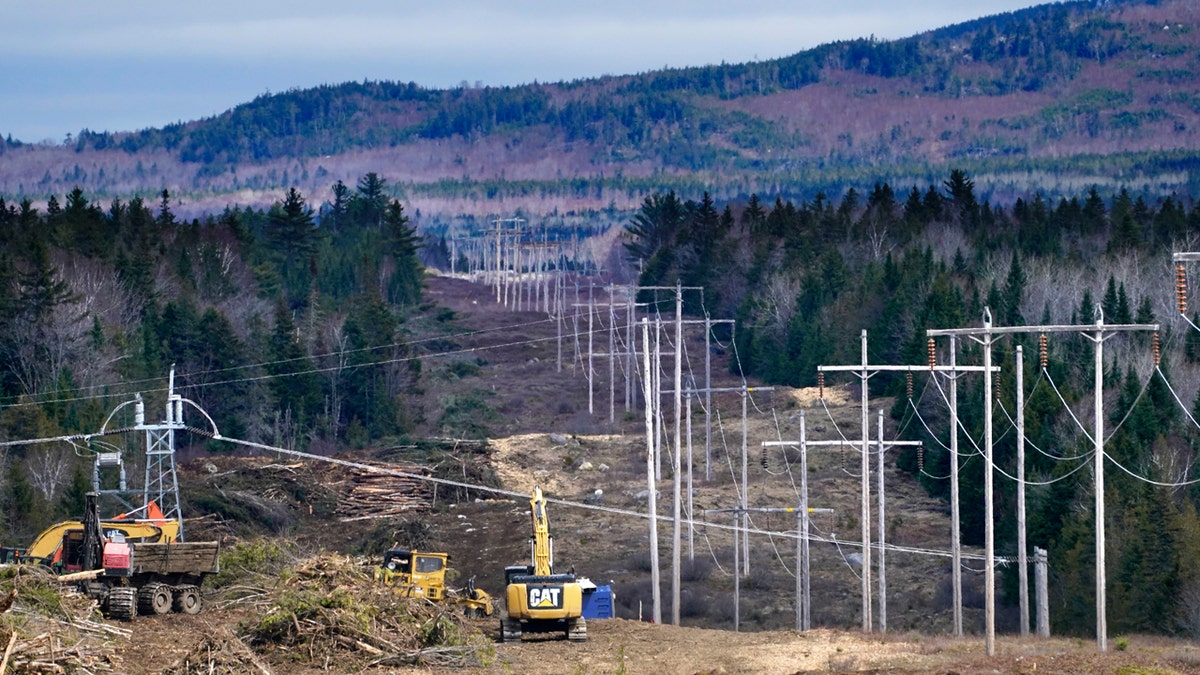Partners in a substantial hydropower project designed to deliver Canadian energy to the New England power grid are currently navigating discussions on how to distribute the escalating costs accrued during extensive legal battles. The aim is to revitalize the presently stalled initiative.
A clause within a pending Massachusetts House spending bill could pave the way for renegotiations between project developers and Massachusetts utility companies. The initial agreement placed the financial burden entirely on Massachusetts ratepayers. The new discussions would address the allocation of any supplementary expenses.
Lauren Diggin, representing the Massachusetts Department of Energy Resources, expressed gratitude to the House for incorporating language that could potentially reignite the New England Clean Energy Connect (NECEC) project. She emphasized the project's significance for Massachusetts customers, highlighting its potential to stabilize electricity rates, ensure a dependable clean energy source during winter, and contribute to the state's emission reduction targets.
For the bill to take effect, it needs to secure approval from the Massachusetts Senate and receive Governor Maura Healey's signature.
Although Maine lifted its stop-work order approximately two months ago, construction on the project, which has faced a tumultuous journey despite bipartisan gubernatorial support in Maine and successful navigation of regulatory hurdles, has yet to recommence.
The final hurdle arose from a lawsuit filed by developers following a Maine referendum where 59% of voters rejected the project, leading to a construction halt. In April, a Maine jury determined that the developers, Central Maine Power's parent company and Hydro-Quebec, had completed sufficient work to establish vested rights to finalize the project. Subsequently, the Maine Department of Environmental Protection reinstated the project's permits.

Construction equipment was used to clear trees and widen an existing power line corridor owned by Central Maine Power in Bingham, Maine, on April 26, 2021.
However, construction remains paused as costs have risen during the project's delays. The project was initially slated for completion this year, but the precise amount of the cost increase remains undisclosed. Avangrid, CMP's parent company, declined to comment. A Hydro-Quebec representative indicated that work has resumed at an electrical converter station and that crews are being mobilized for transmission line work on the Canadian side of the border.
Avangrid and Hydro-Quebec collaborated on this project to construct a power line capable of transmitting up to 1,200 megawatts of Canadian hydropower, aiming to fulfill Massachusetts' green energy objectives. This capacity is sufficient to power approximately one million homes.
While Massachusetts spearheaded the project, proponents argue it will enhance supply stability and lower rates for all regional consumers, while also contributing significantly to combating climate change. They assert that the renewable energy from Canada would be equivalent to eliminating 40% of cars and trucks from Maine's roads.
The 145-mile transmission line is planned to run from Lewiston, Maine, to the Canadian border, primarily following existing utility corridors. The main point of contention centered on a new 53-mile section that requires construction through western Maine's forests. Construction was significantly advanced before being interrupted by the referendum.
The regional power grid operator has expressed support for the project, emphasizing that the region's ambitious climate targets necessitate the development of substantial new infrastructure.








